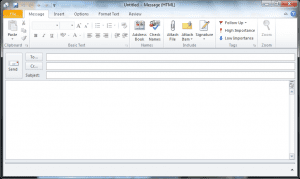It is a principle of South African law that an employer can be held liable for a delict committed by its employee, as long as it can be shown that
- The employee is in fact liable for the delict,
- That an employer/employee relationship existed at the time the delict was committed and
- The delict was committed by the employee “in the course and scope of his or her employment”.
This phrase refers to acts committed by the employee in the exercise of the functions to which he/she was appointed, including such acts as are reasonably necessary to carry out the employer’s instructions.
- While South African law recognises that the employer creates a risk that third parties may be harmed by its employees committing wrongful acts in the course of their duties and that it should be liable to compensate people who suffer harm when the risk materialises, the question posed above has not yet been tested in South African courts. The answer will depend on all of the facts and circumstances of the case. The enquiries will include an examination of the nature and content of the e-mail, the employee’s position, title, scope of responsibilities (and perhaps experience), and the nature of the employer (public or private company, close corporation or partnership). Most importantly one should consider whether the offending act was committed in pursuance of the execution of the employer’s business or whether the employee can be said to have engaged in a “frolic of his own”.
- It is important to remember that binding contracts can be concluded by e-mail and an employer could be bound to a contract entered into by the employee for and on behalf of the company if the employee was either authorised to conclude the contract or if the employee’s responsibilities typically included such activities.
- It is also important to remember that the contracting parties need not be human beings, as sale agreements are now commonly being concluded with “electronic agents” online.In addition, when entering into purchase and sale agreements online, it must be remembered that South African Reserve Bank (SARB) exchange controls apply to all residents in South Africa who wish to remit moneys abroad. This applies to payment in respect of goods purchased abroad. South African residents are also required to pay customs duties and VAT on any imported items when they are collected at the point of entry (which is usually the recipients’ local post office).
- E-mail can contain binding “admissions”, just as can regular mail or other documents. Again the determination will turn on authority and scope of employment. To avert this possibility, some companies have taken to suggesting that their employees draft fairly lengthy electronic “signatures” (which are affixed automatically to the end of all e-mail messages) that expressly disclaim the employee’s authority to act for or bind the employer.
- Even if the employee disclaims official connection with the employer (i.e. by stating that “the following are only my opinions, and do not reflect those of my employer”), can the reputation of the employer be adversely affected? Certainly. In most cases, e-mail from company-provided systems will contain routing information that identifies the company’s Internet “domain” (e.g. name-of-your-company.co.za).
- Aware of this possibility, some employees have taken to posting theirscurrilous messages using pseudonyms while trying to remain anonymous. Unfortunately, this is easier to contemplate than to accomplish. Traffic on the Internet is composed of “packets” which may be likened to postcards, carrying a message, an address, and a return address (these are called “IP addresses”).
- Every e-mail message and browser enquiry is conveyed over the Internet in “packet” format, and monitoring software can easily capture the IP address of the sender’s computer. Whether this IP address is sufficient to actually identify a specific individual depends on the sender’s computer configuration and local computer environment (e.g. a corporate intranet or LAN, or dial-up through an Internet service provider or online service provider).
- Again, where the sender uses a corporate direct connection to the Internet, his/her e-mail and browser requests will carry the corporation’s “.co.za” or “.com” imprimatur and will appear to observers to have come fromsomeone in the company. True anonymity is very difficult to attain.
From the above it should be apparent that employees need to be educated in the risks of sending e-mails or browsing the Internet. It often happens that they are horrified to learn that their every move leaves an audit trail (irrespective of whether or not anyone actually is monitoring their exchanges or later decides to review the system logs). After employees have been educated in these points they are much more likely to act with circumspection in their posting and surfing (both official and personal).
Note
- An organisation must have email policies in place so that employees will not misuse the service. Employees should not email confidential information about the company to anyone. If there are no policies in place, an employee can email sensitive and confidential information to friends of competitors- the company can lose its clients because of this act.
- Employees should not be allowed to visit and download information from some sites. Employees can unknowingly download viruses while downloading information from invalid sources. Viruses spread quickly in workplaces as employees exchange and use removable devices like memory sticks. Viruses can damage the system and destroy valuable information in an organisation.
